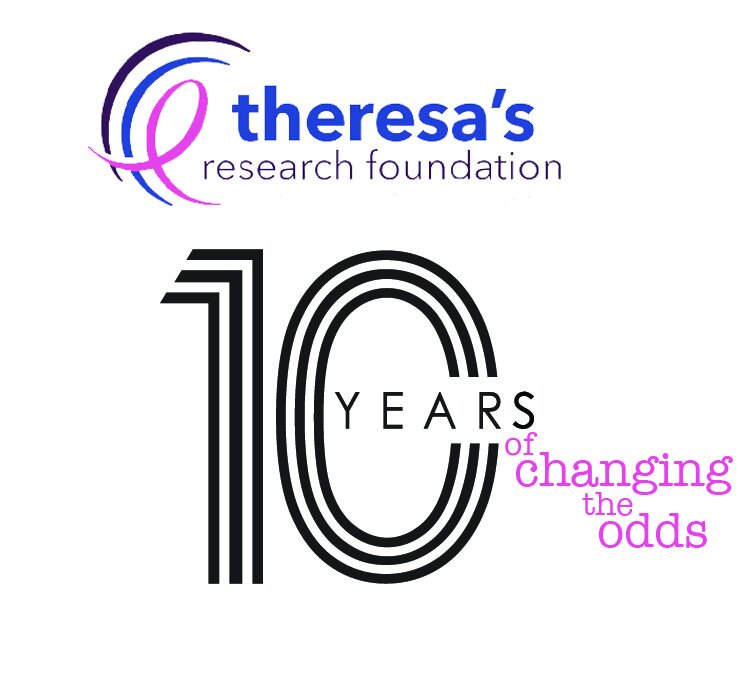MARP 2023: Brittany and Pavitra
How Hope and Science Converged:
A Profound Encounter Between a Researcher and a Cancer Patient
Brittany Lee, Advocate and Pavitra Viswanath, Researcher
Five years ago, on August 16th, my world turned upside down when I was diagnosed with triple positive, stage 2B, invasive ductal carcinoma of the breast. It was just two days after my 43rd birthday, and I was frightened and under the care of a disconnected medical team. Confused and shocked, I trusted my doctors to make the critical decisions about my treatment. Little did I know this decision would have lasting effects.
My oncologist was supportive during chemotherapy, but I felt abandoned and lost once that phase ended. The experience of my surgery was particularly traumatic. My wishes were not heard, and decisions about my body were made without my knowledge. Despite my strong preference against implants, I was advised to have instant reconstruction because I was 'young" and "single." I was too fearful to seek a second opinion.
The aftermath of my mastectomy left me with a severe infection six weeks later. The trauma left me with an aversion to all things pink in October and to rooms with IV stands. I was a mess.
Eventually, I reached a point where my oncologist informed me that I was "cancer-free," and he felt confident it would not come back. My cancer journey was behind me. But a little over a year later, I noticed a decline in my ability to move my legs while playing tennis and falling spontaneously. My oncologist sent me to my PCP. Within a few months, I was in a nursing home, unable to even roll over in bed. There, I received a diagnosis of a rare muscle disease, forcing me to confront the suppressed emotions of my cancer journey.
This led me to join a support group, and my life took a dramatic turn one night when I could not stand up without help. I cried out to God, questioning if I could endure this existence. The following morning, I felt different. I was determined not to let the uncertainty of my future dictate my happiness. I realized that I still had a purpose and could help others facing a breast cancer diagnosis. As I regained strength and relearned to walk, I found hope again, only to find that there was missed pathology from my mastectomy. Soon after, I had another breast cancer diagnosis, Her2+++ and hormone receptor-negative. Confronting my trauma was necessary, but this time, I had the support of my doctors and a compassionate social worker at the Huntsman Cancer Institute. Cancer is a part of my life today, just like my new disability. I resolved that I wanted to offer myself to researchers, hoping that my experiences could prevent others from enduring the same hardships.
In the summer of 2022, I became a Huntsman Cancer Institute Breast and Gynecological Research Advocate. I found out about the program through my friend. From that moment, I felt a deep connection to research and determined to contribute in any way I could.
Attending the MBCRC (Metastatic Breast Cancer Research Conference) was a turning point for me, where I had the privilege of meeting my researcher, Pavitra Viswanath. Our connection was instantaneous, rooted in our individual experiences with cancer. While I had lived the life of a patient, Pavitra had been a caregiver and had her own encounters with cancer through her family—her grandfather had multiple myeloma, and her grandmother had triple-negative breast cancer.
Pavitra's journey into breast cancer research was deeply influenced by her family's battles with cancer. Her grandfather's struggle with multiple myeloma and her grandmother's battle against triple-negative breast cancer were not just distant stories but integral parts of her life. These experiences motivated her to make a difference in the field. While I had my firsthand experience as a patient, Pavitra's perspective was shaped by her role as a caregiver, witnessing the impact of cancer on those she loved.
During the conference, Pavitra graciously explained scientific aspects and jargon, helping me bridge the gap between the emotional and scientific realms. She readily answered my scientific questions, and I wished we had more time to converse. Meeting Pavitra and hearing about her family's experiences and her passion for changing the trajectory of cancer research was nothing short of inspiring. As the conference progressed, I became increasingly emotional, mainly when I learned about a fellow cancer sister's recent metastatic diagnosis, which left her hospitalized. Her story weighed heavily on my heart throughout the event.
It became evident that there is a profound and emotional connection within the cancer community despite the common belief that science operates devoid of emotion. Patients, advocates, researchers, clinicians, and the friends and family of those affected by cancer all share a passion for the well-being of patients. Together, we use our unique skills and experiences to work towards a common goal: improving the lives of those affected by cancer. The collision of science and emotion is a powerful force, driving us to push boundaries and discover new ways to combat this disease. The greater good unites us all.
In this journey, we both realized that hope and science can converge, creating a profound encounter that transforms lives and empowers us to make a difference.

